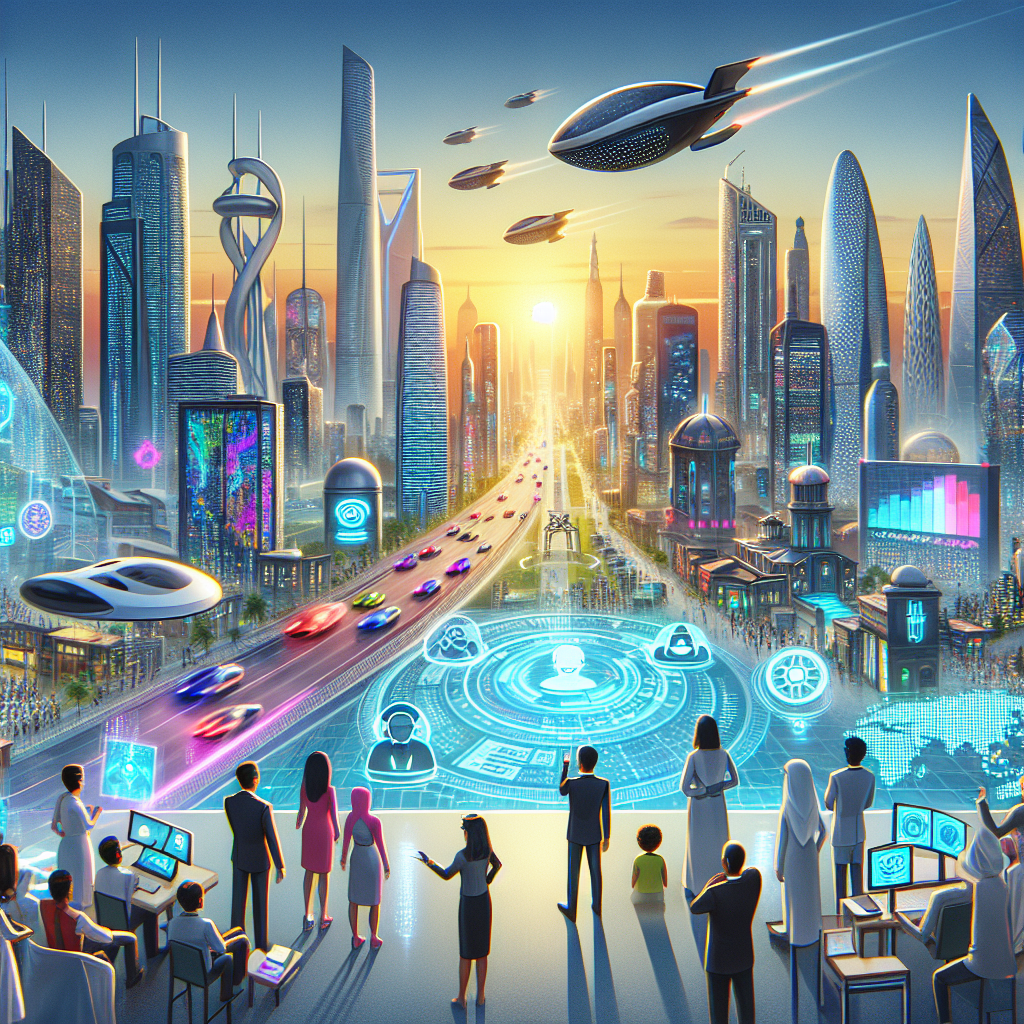The Technological Revolution: Shaping the Future of Society and Governance
In a world constantly evolving, few things have as profound an impact as technological advancements. The digital age, marked by rapid technological innovation, is fundamentally reshaping every aspect of our lives. From healthcare to education to government functioning, the technological revolution is not just an afterthought but the driving force behind the most significant changes since the Industrial Revolution. This revolution is ushering in a new era, promising to transform society in unprecedented ways.
The Digital Age: An Unstoppable Force
The impact of the technological revolution cannot be overstated. Today, technology is intertwined with every aspect of our daily lives, influencing how we communicate, work, and interact. The digital age, characterized by the proliferation of the internet, smart devices, and artificial intelligence, is revolutionizing industries and creating new opportunities and challenges. This transformation is not just limited to the private sector but extends to public governance and societal structures.
For a deeper understanding of the digital age and its implications, Exploring the Digital Age provides comprehensive insights.
Transforming Healthcare
One of the most significant areas of impact is healthcare. The integration of technology into medical practices is leading to groundbreaking advances in patient care, diagnostics, and treatment. From telemedicine to AI-driven diagnostics, technology is making healthcare more accessible, efficient, and personalized.
Telemedicine, for instance, allows patients to consult with doctors remotely, reducing the need for physical visits and enabling timely medical interventions. AI algorithms can analyze vast amounts of medical data, assisting doctors in diagnosing diseases more accurately and quickly. Additionally, wearable health devices monitor vital signs in real-time, providing valuable data that can lead to early detection of potential health issues.
These advancements are not just improving patient outcomes but are also reducing healthcare costs and increasing efficiency. The potential for technology to further revolutionize healthcare is immense, promising a future where medical care is more proactive, personalized, and accessible to all.
Revolutionizing Education
Education is another sector undergoing a significant transformation due to technological innovation. Traditional teaching methods are being supplemented and, in some cases, replaced by digital tools and platforms. E-learning has become a vital component of modern education, offering flexibility and accessibility that traditional classrooms often cannot.
Online courses, virtual classrooms, and educational apps have democratized access to education, allowing individuals from all backgrounds to acquire knowledge and skills at their own pace. Interactive learning tools and AI-driven personalized learning experiences cater to the unique needs of each student, enhancing their learning outcomes.
Moreover, technology is bridging the gap between theoretical knowledge and practical application. Virtual labs and simulations provide hands-on experience in a virtual environment, preparing students for real-world challenges. The integration of AI in education also offers adaptive assessments, identifying areas where students need improvement and providing targeted assistance.
For those interested in exploring the intersection of technology and education further, The Impact of Technology on Education offers valuable perspectives.
Government in the Digital Age
The technological revolution is also reshaping the way governments operate. Traditionally known for their bureaucratic processes and slow adaptation to change, governments are now recognizing the potential of technology to enhance public service delivery and governance.
Digital governance, or e-governance, leverages technology to streamline processes, improve transparency, and increase citizen engagement. E-governance initiatives include online portals for government services, digital identity verification, and the use of blockchain for secure and transparent transactions. These initiatives not only make government services more accessible but also combat corruption and enhance public trust.
Artificial intelligence is another game-changer for government functions. AI can analyze large datasets to identify patterns and trends, aiding in policy-making and resource allocation. For instance, predictive analytics can help governments anticipate and address public health crises, manage urban development, and improve public safety.
Additionally, technology is fostering greater citizen participation in the democratic process. Social media platforms and online forums provide spaces for public discourse and feedback, enabling governments to be more responsive to the needs and concerns of their citizens.
The Exciting Future Ahead
Despite the challenges and criticisms often associated with rapid technological change, it is an exhilarating time to be involved in shaping the future. The possibilities brought forth by technological advancements are vast and transformative. As society navigates this era of significant change, it is crucial to remain adaptable and forward-thinking.
The technological revolution is not without its hurdles. Issues such as digital divide, cybersecurity, and ethical concerns around AI and data privacy need to be addressed. However, the potential benefits far outweigh the challenges. By embracing and harnessing technology, society can create a future that is more equitable, efficient, and innovative.
Conclusion
In conclusion, the technological revolution is the most significant change we are experiencing since the Industrial Revolution. It is reshaping every aspect of our lives, from healthcare and education to government functioning. The potential of technology to transform society and governance is immense, and it is an exciting time to be part of this journey. By staying informed and adaptable, we can navigate this era of change and create a future that leverages technology for the betterment of all.
For further reading on the future of technology in government, The Future of Digital Government provides insightful analysis and predictions.
As we move forward, it is imperative to understand that this revolution is not just about technological advancements but about reimagining society and governance in ways that were once thought impossible. The future is now, and it is a thrilling time to be part of this transformative journey.
Related News
- The Technology Revolution: Navigating the AI-Driven Future
- AI: The Thrilling Frontier of Human Ingenuity and Technology
- The Dynamics of Tech and Politics: Navigating Partnerships and Progress
- The Future of AI: Innovations, Challenges, and Uncharted Territories
- The Evolution of AI: A Journey from Prediction to Reality
